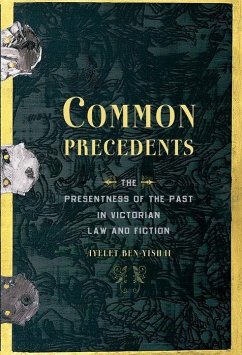Reading major novels by George Eliot, Anthony Trollope, and Wilkie Collins, Common Precedents shows that precedential reasoning enjoyed widespread cultural significance in the nineteenth-century as a means of preserving a sense of common history, values, and interests in the face of a new heterogeneous society. Enabling the recognition of the new and its assimilation as part of a continuous past, Ayelet Ben-Yishai argues that the binding force of precedent also functions as the binding element of an always shifting commonality, pulling it together in the face of rupture and dispersion. By appearing to bring the past seamlessly into the present, the form of legal precedent became vital to the preservation of a sense of commonality and continuity crucial to the common law and Victorian legal culture. But the impact of precedent extended beyond legal practices and institutions to the culture at large, and especially to its fiction. Ben-Yishai argues that understanding the structure of precedent also explains fictional form: how fictionality works, its epistemology, and the ways in which its commonalities are socially constructed, maintained, and reified.
Hinweis: Dieser Artikel kann nur an eine deutsche Lieferadresse ausgeliefert werden.
Hinweis: Dieser Artikel kann nur an eine deutsche Lieferadresse ausgeliefert werden.








